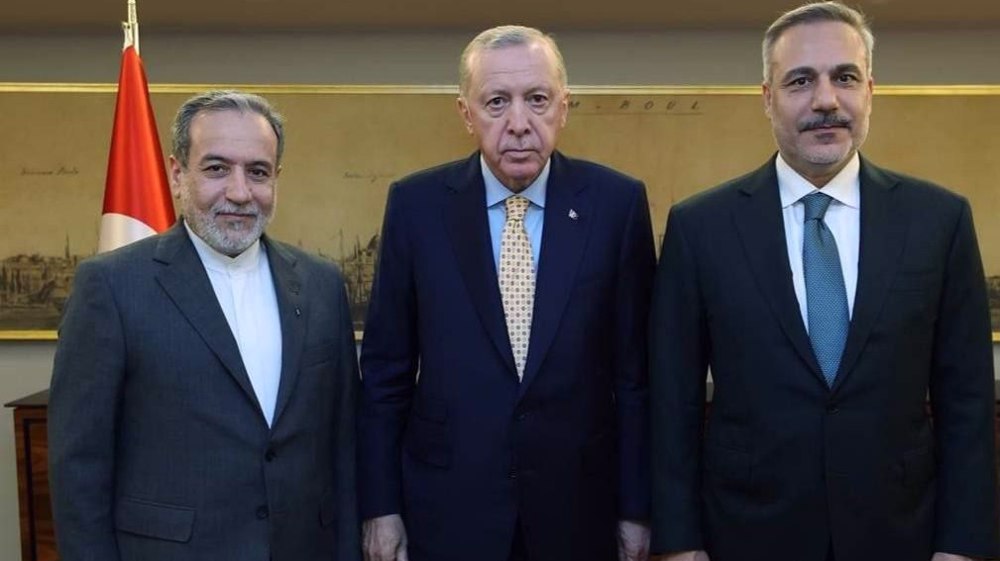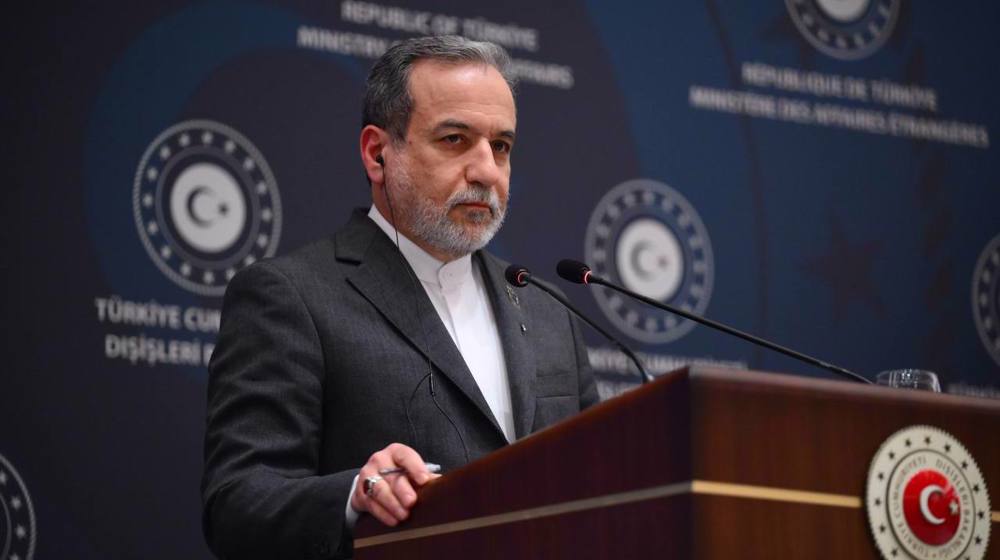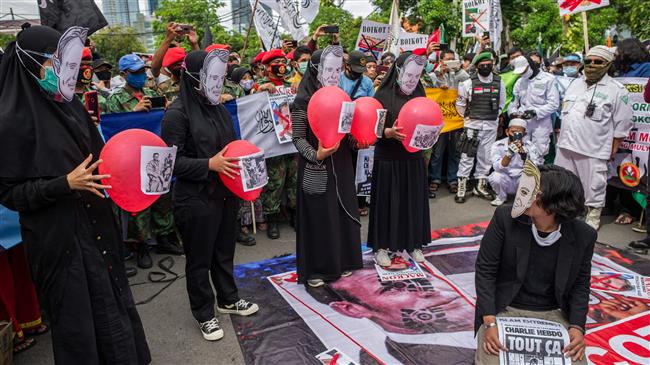Macron accuses Turkey, Russia of pushing anti-French sentiment in Africa
French President Emmanuel Macron has accused Turkey and Russia of whipping up anti-France sentiments across Africa by funding individuals that incite resentment against Paris in the local media.
“We must not be naive on this subject: many of those who speak, who make videos, who are present in the French-speaking media are funded by Russia or Turkey,” Macron claimed during a Friday interview with Paris-based Jeune Afrique magazine.
The French president, who has generated widespread controversy by his latest anti-Islam remarks, further accused Turkey and Russia of attempting “to play on post-colonial resentment.”
Macron sparked extensive anger especially among the Muslim population of nearly two billion people, after he publicly attacked the Abrahamic religion in defense of repeated publication of derogatory cartoons of Prophet Muhammad (PBUH) by French satirical magazine Charlie Hebdo in the name of “freedom of expression.”
In his interview, he accused Ankara of contributing to the “misunderstandings” over his justification of re-publishing the sacrilegious cartoons back in October.
“When I decided to attack radical Islam … my words were distorted. By the Muslim Brotherhood -- quite widely -- but also by Turkey, which has the ability to influence a lot of public opinion, including in sub-Saharan Africa,” Macron claimed.
Reiterating his Islamophobic position that has caused huge controversy across France and beyond over recent months, he further claimed: “I am not attacking Islam, I am attacking Islamist terrorism,” using a term deliberately repeated to depict Muslims as violent by faith.
Paris has called for a total reconsideration of ties between the European Union and Turkey, which under President Recep Tayyip Erdogan has significantly expanded its presence and influence in Africa in recent years.
During the interview, Macron also ruled out negotiations with armed groups in Africa’s restive Sahel region, where France is engaged in a military intervention by deploying thousands of troops.
“We don’t talk with terrorists. We fight,” Macron further boasted, as discussions intensify in France and Africa over the long-term strategy of its controversial Operation Barkhane military force.
He went on to claim that Paris would talk to different political and other groups, but not armed groups “which continue to kill civilians and soldiers, including our soldiers.”
Macron’s latest remarks on the denunciation of Islam and in defense of secularism have drawn widespread backlash from Muslim activists and advocates of the noble religion.
Macron in early October unveiled a plan to defend his country’s "secular values" against what he labeled as “Islamist radicalism” and claimed that the religion was “in crisis” all over the world.
Macron underlined that “no concessions” would be made in a new drive to eliminate religion from education and the public sector in the country.
The French president also said his government would present a bill in December that would strengthen the country’s 1905 law that officially separated religion and state.
OIC welcomes Oman-mediated Geneva talks between Iran, US; warns against use of force
VIDEO | Campaign to boycott Israeli ‘apartheid dates’ in UK intensifies during Ramadan
VIDEO | Pakistan launches Operation Ghazab lil-Haq after Afghan border firing
VIDEO | Pakistan condemns Israel’s expansionist agenda in Palestine at OIC
Rubio warns US envoys against undermining Trump’s pressure campaign targeting Iran: Report
Iran, Qatar stress continuation of diplomacy towards preserving regional peace, stability
Majority of Americans support Palestinian state as Israel backing declines sharply: Poll
New Israeli strikes kill more Palestinians across Gaza in 'serious violation' of ceasefire















 This makes it easy to access the Press TV website
This makes it easy to access the Press TV website